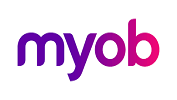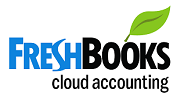Bookkeeping Support based on the Principle of Non-Zero-Sum Theory
By infusing the principles of non-zero-sum game theory into bookkeeping support, the outcomes are twofold: a more productive and cooperative client interaction, along with enhanced results and service delivery.
- Client Relationships and Cooperation
- Mutually Beneficial Partnerships
- Customized Service Packages
- Knowledge Sharing
- Long-Term Goals
- Ethical Considerations
- Conflict Resolution
- Continuous Improvement
Doing What Matters for You.
Bookkeeping is our expertise, and we’re here to take that burden off your shoulders.
Let us handle your bookkeeping while you focus on what matters most – YOUR BUSINESS.
12+
Years of Experience
10+
Accounting Software
200+
Third Party Applications
Ever wondered why these questions bother you?
Absolutely, seeking a bookkeeping service that offers assistance in setting up and managing your chart of accounts is a smart decision for achieving improved financial organization. A well-structured chart of accounts forms the foundation of your financial management, making it easier to track income, expenses, and other financial activities. By collaborating with a bookkeeping service that specializes in this area, you can ensure that your chart of accounts is tailored to your business needs, accurately reflects your financial transactions, and provides valuable insights for informed decision-making. This proactive approach to financial organization can lead to greater efficiency, accuracy, and clarity in managing your business’s finances.
Absolutely, considering the advantages of accessing real-time financial data and reports through cloud-based accounting systems is highly recommended. Cloud-based accounting systems offer several benefits that can significantly impact your business’s financial management:
Instant Accessibility: Cloud-based systems allow you to access your financial data and reports from anywhere with an internet connection. This convenience is especially valuable for business owners who need to stay informed on the go.
Real-Time Updates: With real-time data syncing, you can see the most up-to-date financial information, ensuring that you’re making decisions based on current figures rather than outdated numbers.
Collaboration: Cloud-based systems enable easy collaboration among team members and your financial advisors. Multiple users can access the same data simultaneously, fostering better communication and coordination.
Data Security: Reputable cloud providers offer robust security measures to safeguard your financial information, often exceeding what can be achieved on local servers.
Cost Savings: Cloud-based solutions often eliminate the need for extensive on-site infrastructure, reducing IT-related costs and maintenance.
Scalability: As your business grows, cloud systems can easily scale to accommodate increased data storage and usage without the need for major hardware upgrades.
Automation: Many cloud-based accounting systems offer automation features that streamline routine tasks, saving you time and reducing the risk of human errors.
Reporting and Analytics: Cloud systems provide advanced reporting and analytics tools that allow you to generate insightful reports, visualize trends, and make data-driven decisions.
Incorporating cloud-based accounting systems into your financial management strategy can elevate your business’s efficiency, accuracy, and overall decision-making capabilities. It’s a forward-looking approach that aligns well with the demands of today’s dynamic business landscape.
Certainly, seeking assistance with bank reconciliation is highly recommended to ensure the alignment of your records with your actual financial transactions. Bank reconciliation is a crucial process that involves comparing your internal financial records, such as your ledger or accounting software, with your bank statements. This verification helps identify any discrepancies, such as errors or missing transactions, and ensures that your financial records accurately reflect the true state of your finances.
Having a professional or a specialized service assist you with bank reconciliation can offer several benefits:
Accuracy: Experts can meticulously review and match each transaction, minimizing the risk of errors that might otherwise go unnoticed.
Time Savings: Bank reconciliation can be time-consuming, especially for businesses with a high volume of transactions. Outsourcing this task frees up your time to focus on other critical aspects of your business.
Expertise: Professionals skilled in financial reconciliation can quickly identify and resolve discrepancies, providing you with accurate financial insights.
Detection of Fraud: Expert eyes can help identify unusual or unauthorized transactions, helping you detect potential fraud or irregularities.
Consistency: Regular reconciliation ensures that your financial records remain up to date and consistent with your bank statements, aiding in accurate financial reporting.
Compliance: Accurate financial records are essential for tax compliance and audits. Assistance with bank reconciliation helps ensure that your records are in order.
Financial Decision-Making: Reliable financial records support informed decision-making by providing a clear picture of your financial position.
Incorporating professional help for bank reconciliation can contribute to improved financial accuracy, transparency, and peace of mind. It’s a prudent step that reinforces the integrity of your financial management and supports your business’s overall financial health.
Certainly, We understand your concerns about managing vendor payments and keeping track of accounts payable aging. These are common challenges that many businesses encounter. Fortunately, there are effective strategies and solutions to address these issues:
Streamlined Payment Processes: Implementing a systematic approach to vendor payments can greatly improve efficiency. Consider setting up a regular payment schedule to ensure timely payments. You might also explore using electronic payment methods to expedite the process.
Accounts Payable Aging Reports: Generating regular accounts payable aging reports is essential for monitoring outstanding payments. These reports categorize payables by age, helping you identify which invoices are overdue and need immediate attention.
Accounting Software: Utilizing accounting software can simplify both vendor payments and accounts payable tracking. Many software solutions offer features for managing vendor invoices, setting up payment reminders, and generating aging reports.
Automation: Consider automating certain aspects of the accounts payable process. Automated reminders can help you stay on top of payment due dates, reducing the chances of missing deadlines.
Communication with Vendors: Maintain open communication with your vendors. If you anticipate any payment delays, it’s best to inform them in advance. Establishing good communication can lead to more flexible arrangements and better vendor relationships.
Vendor Terms and Negotiations: Review your vendor terms and negotiate if necessary. Longer payment terms or flexible arrangements might alleviate some of the pressures associated with payments.
Professional Assistance: If the complexity of managing payments and tracking payables is overwhelming, you might consider seeking professional assistance from a bookkeeping service. They can handle these tasks efficiently, ensuring accuracy and timely payments.
Regular Reconciliation: Regularly reconcile your accounts payable ledger with your financial records to catch any discrepancies or errors.
Remember that effective management of vendor payments and accounts payable aging is crucial for maintaining positive relationships with vendors and a healthy financial position. Implementing some of these strategies can lead to smoother operations and better financial control.
Absolutely, it’s worth considering the cost-saving advantages of outsourcing bookkeeping when compared to maintaining an in-house accounting team. Outsourcing your bookkeeping functions can offer several financial benefits:
Reduced Overhead Costs: Outsourcing eliminates the need for hiring and maintaining a full in-house accounting team, which can involve costs like salaries, benefits, office space, and equipment.
Expertise at a Fraction of the Cost: Outsourcing provides access to skilled professionals with specialized expertise. You can tap into their knowledge without incurring the expenses associated with hiring and training an internal team.
Scalability: As your business grows, outsourcing allows you to scale your bookkeeping services up or down as needed, avoiding the fixed costs of hiring additional employees.
Avoidance of Recruitment Costs: The process of recruiting and onboarding new in-house employees involves expenses like advertising, interviewing, and training. Outsourcing avoids these upfront costs.
Technology and Software Costs: Outsourcing often includes the use of advanced accounting software and tools. You won’t need to invest in expensive software licenses or upgrades.
Reduced Risk of Errors: Professional outsourced bookkeeping services are skilled at accuracy and compliance, reducing the risk of costly errors that can arise from in-house teams with less experience.
Focus on Core Business Activities: Outsourcing bookkeeping allows you and your team to concentrate on your core business functions, which can lead to increased productivity and growth.
Access to Insights: Outsourced providers often offer analytical insights and reporting that can help you make informed financial decisions.
Flexibility: Outsourcing gives you the flexibility to customize services based on your needs and budget, offering a more cost-efficient solution.
Cost Predictability: Outsourcing services are often billed on a fixed fee or hourly basis, providing greater predictability in your financial planning.
By outsourcing bookkeeping, you can redirect resources toward revenue-generating activities while benefiting from professional expertise and cost-effective solutions. It’s a strategic move that aligns well with the financial goals of many businesses.
We understand that you’re currently encountering difficulties in effectively tracking expenses and income, which is impacting your ability to assess your business’s financial health. This is a common challenge that many businesses face, and addressing it is crucial for making informed decisions and ensuring the stability of your business. There are several steps you can take to overcome these challenges:
Implement a Systematic Approach: Create a structured system for recording and categorizing both expenses and income. This ensures that every transaction is properly documented and organized.
Use Accounting Software: Consider utilizing accounting software to automate the tracking process. These tools can streamline data entry, generate reports, and provide insights into your financial performance.
Regular Reconciliation: Reconcile your bank statements with your financial records on a regular basis. This helps identify any discrepancies and ensures the accuracy of your financial data.
Expense Tracking Tools: Utilize expense tracking tools or apps to record expenses in real-time. This prevents any expenses from slipping through the cracks.
Set Up Budgets: Develop a budget that outlines expected expenses and income. Regularly compare your actual figures to your budget to identify any deviations.
Separate Business and Personal Finances: Keeping your business and personal finances separate makes it easier to track and manage business-related transactions.
Seek Professional Assistance: If managing your finances becomes overwhelming, consider consulting with a financial advisor or bookkeeping professional. They can provide guidance on best practices and help you interpret your financial data.
Regular Financial Reviews: Schedule regular reviews of your financial statements and reports. This practice helps you stay up-to-date with your financial performance and identify trends.
Cash Flow Management: Monitor your cash flow closely. Proper cash flow management ensures you have enough liquidity to cover expenses and seize opportunities.
Educate Yourself: Invest time in learning about basic financial concepts. Understanding financial statements and ratios will empower you to make better financial decisions.
Improving your expense and income tracking practices will not only aid in assessing your business’s financial health but also provide insights for growth and strategic planning. With the right tools and methods in place, you can gain a clearer picture of your business’s financial status and make informed decisions accordingly.
The answer is simple: You didn't start your business to be a bookkeeper, did you?
Our Services





We will start by scheduling an introductory meeting to get to know you and your business better. During this meeting, we'll discuss your specific requirements, challenges, and goals to ensure we tailor our services to meet your unique needs.
To ensure a smooth transition, we'll request some essential information about your business, such as your entity type, accounting software used, access to relevant financial documents, and any specific industry considerations.
Based on our understanding of your requirements, we will present you with a detailed proposal outlining the scope of services, pricing, and terms. Once you review and approve the proposal, we'll formalize our partnership with a service agreement.
With your permission, we'll collect all necessary financial data, such as bank statements, invoices, receipts, and payroll records. If you already use accounting software, we'll work with you to ensure a smooth integration. If not, we can assist in setting up the appropriate accounting software for your business.
We believe in providing personalized service, so we will assign a dedicated bookkeeper or account manager who will be your main point of contact. They will be available to address any queries and ensure effective communication throughout the process.
Our team will diligently handle your day-to-day bookkeeping tasks, including data entry, bank reconciliations, accounts payable and receivable management.
We'll generate accurate financial reports, such as income statements, balance sheets, and cash flow statements, on a regular schedule so that you can have real-time insights into your business's financial health.
To ensure transparency and enable informed decision-making, we'll schedule periodic review meetings to discuss financial performance, address any concerns, and provide strategic insights to help you achieve your business goals.












